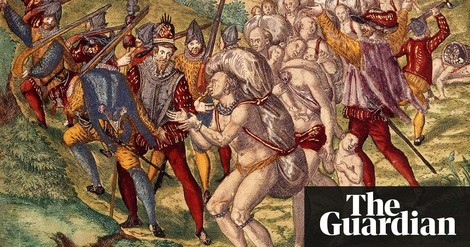Your podcast discovery platform
Curious minds select the most fascinating podcasts from around the world. Discover hand-piqd audio recommendations on your favorite topics.

piqer for: Climate and Environment Global finds Globalization and politics
I'm a freelance journalist, currently based in Madrid. I used to be a News Producer at CNBC in London before, but I thought a little bit more sun might do me good. Now I write for several news organizations, covering a range of topics, from Spanish politics and human rights for Deutsche Welle to climate change for La Marea.
These Scientists Say The Anthropocene Began Five Centuries Ago
Geologists divide the history of the planet in time spans that correspond to different strata found in rocks. Right now, the consensus is that we're living in the Holocene, an epoch that started around 11,700 years ago.
Or are we? More and more scientists are using the term "Anthropocene" to describe a new epoch, in which human activity can be verified through geological analysis of rocks. In other words: humans have permanently modified the planet.
Nobel laureate Paul Crutzen, who popularized the term in the year 2000, pointed to the invention of the steam engine by James Watt as the starting point of this new geological epoch. Other scientists have proposed that it started with the detonation of the first atomic bombs, while another group argues that it's the massive use of plastics that really kicked off this new era. And for many others, there's no such thing as the Anthropocene.
This article brings us another view of this fascinating topic. Two British researchers now claim that the Anthropocene actually started in the 16th century, with the colonization of the New World. The germs that the European soldiers and settlers brought to the Americas decimated the local population, making their society collapse:
Forests returned to land that had been abandoned by humans. “We can detect this in Antarctic ice cores,” added Maslin. “These provide a history of the atmosphere for thousands of years and show carbon dioxide levels reached a distinct minimum around 1610 because forests, which are much better than farm crops at absorbing carbon dioxide, were now covering vastly increased areas of the American landscape – thanks to the eradication of the people who had once farmed there.”
If you have never read about the Anthropocene, this could be a great place to start as it includes a short but accurate summary (here's an old but excellent discussion to catch up if you'd like). And if you know the debate, read on: You'll be surprised by this bold and compelling new position.
